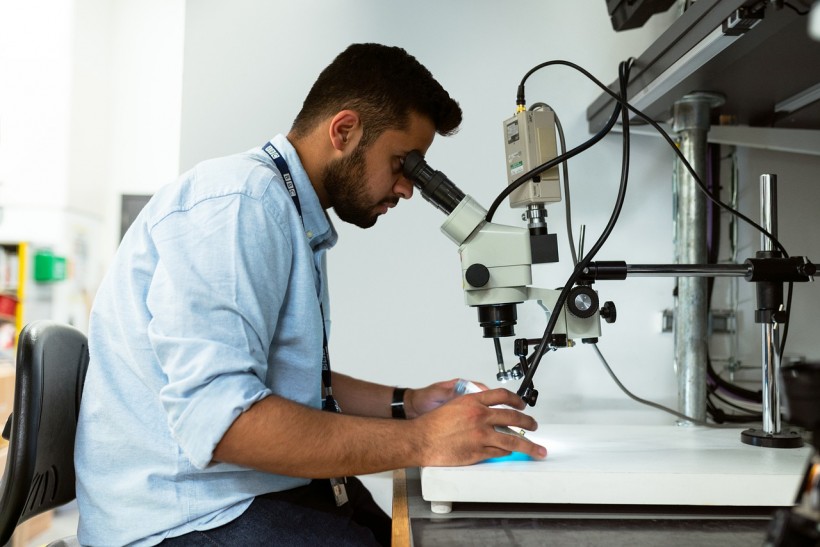Genealogy testing is in demand because a lot of people are curious about their ancestry. In order to decide if you conducting DNA tests are something to pursue, determine if you have the budget to buy the necessary tools. Here are some notes on what ancestry testing is and which molecular genetics software a lab needs to accurately study DNA segments.
What Is Ancestry Testing?
Ancestry testing is a form of scientific testing offered when someone wants to learn about their family's history. This genetic ancestry testing takes a deep look into where your ancestors originated. Scientists carefully examine the DNA for patterns of variation it shares with people from different backgrounds. The more patterns of variation these scientists discover, the more relations the patients have to specific people.
How Ancestry Testing Works
When the patient is ready for their ancestry test, they attend a genetic consultation with their physician, a medical geneticist, or other medical professional. At this appointment, they provide a DNA sample. The sample is of their skin, hair, blood, or amniotic fluid. Then, their DNA sample is sent to a lab. At the lab, scientists analyze the sample to determine certain changes in proteins, chromosomes, and DNA.
The scientists use complicated molecular genetic tools to review the samples closely. They conduct different types of tests to help them produce accurate results of where the patient's ancestors originated. They also identify possible illnesses and diseases the patient may genetically be at risk for, and which traits they're most likely to inherit.
Which Tools and Molecular Genetics Software Do You Need in Ancestry Testing?
If you want your startup lab to work in the genealogy testing market, first make sure you have the right tools. These tools are necessary to conduct and deliver accurate tests to your patients. The main tools you need to begin in the ancestry testing market include:
○ Microscopes: Advanced microscopes are necessary to more closely examine biological tissues and molecules. You can also consider investing in a microscope that takes photos for your records.
○ Polymerase Chain Reaction Machines: This tool allows you to create copies of a certain DNA segment. You can also perform various DNA tests and compare them without harming the original segment.
○ Medical Laboratory Software: There are many strong molecular genetics tools that you can use to track specimens and handle lab workflows.
○ Extension Modules: This tool makes it easy for your lab to communicate with clients. It allows you to attach documents or direct order forms easily. This helps to share and receive important information with patients, other labs, or physicians efficiently.
Drafting Your Laboratory's Business Plan
If you want to conduct DNA tests at your startup, consider adding this to your business plan. Include details on what service your genealogy testing lab will offer and benefits for the patients. Determine if your lab will provide walk-in services that cater to patients directly. Or, if doctors and patients will send samples to your lab for you to test and return with results. There are several different types of DNA tests that laboratories offer for you to consider.
So, consider each of them and choose what makes best sense to provide. Some companies also provide DNA tests for corporate and government agencies. You need to decide which organizations you prefer to work for directly, or if your lab will just cater to both.
Having the Necessary Funding for Your Molecular Genetics Software
Whether you're launching a startup lab from scratch, or expanding it to provide DNA testing in addition to other laboratory services, you need a budget plan. As mentioned previously, there are many equipment needs and additional tools necessary to operate as a DNA lab successfully. You may fund these tools either out of your own pocket, from an investor, or via a business loan.
Conduct online research to find potential funding opportunities for your lab. Visit banks online or in person to educate yourself on the types of loans available. Another good option is to visit the Small Business Administration website to learn which loans are offered in your area. You may find there are loans available specific to laboratories and research opportunities.
Pick Your Location and Apply for Permits
If you don't already have one your startup needs a location for successful operations. If you currently rent space for your startup lab and plan for expansion to offer DNA testing services, check to make sure it is large enough to store new equipment and additional employees. If your current space isn't large enough to house everything, contact your landlord to explore expansion options. Or, start searching for a new space to meet your growth needs.
When you choose a location, be sure to pull all the permits needed to run a DNA testing lab. Your lab will need inspections to ensure it meets the necessary codes and regulations for accreditation as an official testing lab. Check with your state's department of health for which tests and inspections are required.
To be an official and credible testing facility, contact different accrediting agencies, like the American Association of Blood Banks and the College of American Pathologists. Inquire as to what the specifics are regarding the materials you need and any required tests.
Using Molecular Genetics Software to Find DNA Results
It's possible for startup labs to conduct DNA tests, if you invest in the right equipment. The larger the budget you build for equipment, the more you can advance and improve your lab. This allows you to offer more advanced experiments for businesses, individuals, and medical facilities.
* This is a contributed article and this content does not necessarily represent the views of sciencetimes.com














![Earth's Quasi-Moon Kamo‘oalewa Could Originate From Lunar Surface Not Asteroid Belt [Study]](https://1721181113.rsc.cdn77.org/data/thumbs/full/53275/258/146/50/40/earths-quasi-moon-kamo-oalewa-could-originate-from-lunar-surface-not-asteroid-belt-study.png)
